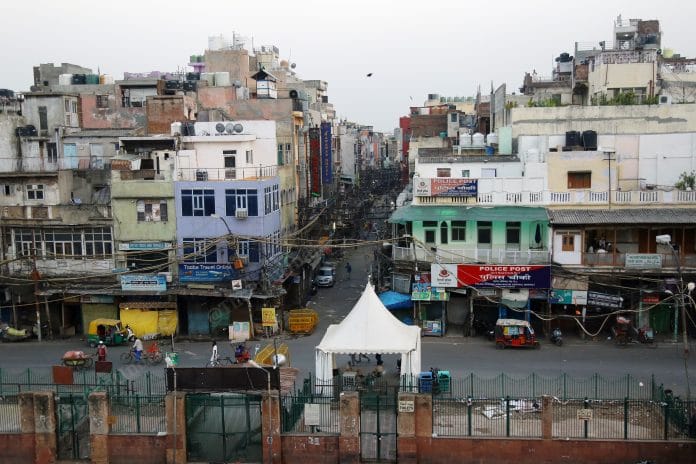New Delhi: Citing “inconsistencies and contradictions” in witness testimonies, a Delhi court has cast “serious doubts” on the prosecution narrative in a 2012 Delhi Jama Masjid riots case, thereby acquitting 16 men arrested for rioting, arson and unlawful assembly.
A bench of Additional Sessions Judge (ASJ) Virender Kumar Kharta last week said the witness testimonies presented by the prosecution were not only unclear but also not as cogent, credible, or trustworthy as expected.
In its 72-page order, the court noted that other material evidence did not corroborate the testimonies, adding that neither the police collected any relevant CCTV footage nor examined any independent eyewitnesses.
“The evidence adduced by the parties must have a ring of truth. In a criminal trial, the prosecution has to prove the case beyond a reasonable doubt, and it is possible only when the testimony of prosecution witnesses is cogent, trustworthy and credible,” the court said in its judgment.
As it happened
The case dates back to 2012. In July of that year, a police station was set on fire near Jama Masjid’s Jagat Cinema Police Booth, a little after midnight.
Later, investigators arrested 16 men on charges such as arson, rioting, theft, using criminal force on a public servant, obstruction of public servants while discharging duties, unlawful assembly, and mischief by fire or explosives.
The prosecution alleged that the accused were members of an “unlawful assembly” that pelted stones and bricks, torched the police post, damaged many vehicles, and committed the offence of rioting, armed with deadly weapons.
The accused, according to the prosecution, also stole Rs 7.5 lakh in cash from two bags in a car they snatched during the incident, without the owner’s consent, near Urdu Bazar on the night of 21 July 2012.
One of the accused failed to appear before the court when summoned in 2019, and thus, became a proclaimed offender, the prosecution told the court. A proclaimed offender is someone accused of a serious crime and who the court has declared to be deliberately hiding to evade justice, leading authorities to issue a public proclamation requiring their appearance.
At the scene of the crime, investigators found broken glass and stones, as well as damaged vehicles, and recorded the statements of police personnel on duty.
According to the investigators, they received “secret information” from the parking lot and picked up the accused, who later confessed to their involvement and disclosed the names of their accomplices.
Also Read: CAA, Delhi riot among ‘triggers’ — Delhi Police find Jahangirpuri ‘conspiracy’ in WhatsApp chats
Reasoning for acquittals
The court acquitted the accused, saying the testimonies of the prosecution witnesses must be reliable to prove the prosecution’s case. It added that it is not the quantity but the quality of testimonies that helps the court decide cases.
“The things appear not to have happened in the manner…projected,” the court noted, after listening to differing testimonies by witnesses, including the police and the complainant.
Saying that it is an established principle of law that if two views are possible, the view favourable to the accused is accepted, the court added, “The benefit of doubt must always go to the accused as the prosecution has to prove the case beyond a reasonable doubt.”
The defence witnesses included family members who confirmed the accused stayed back at home during the month of Ramzan when the incident occurred. One of the accused was never at the site of the riots, a defence witness told the court, adding that the accused was at the mosque, praying, at the time of the incident.
The accused also told the court that despite the prosecution admitting the presence of several SHOs, ACPs and staff at the spot during the crime, none of them admitted to identifying any accused in the mob that had attacked.
They also argued that though shops in the Jama Masjid area are open all night, the prosecution did not examine any shopkeepers or independent public persons to corroborate what had happened.
(Edited by Sugita Katyal)
Also Read: Over 45,000 cops, armoured vehicles deployed & 1,300 arrested as rioting in France enters day-4






